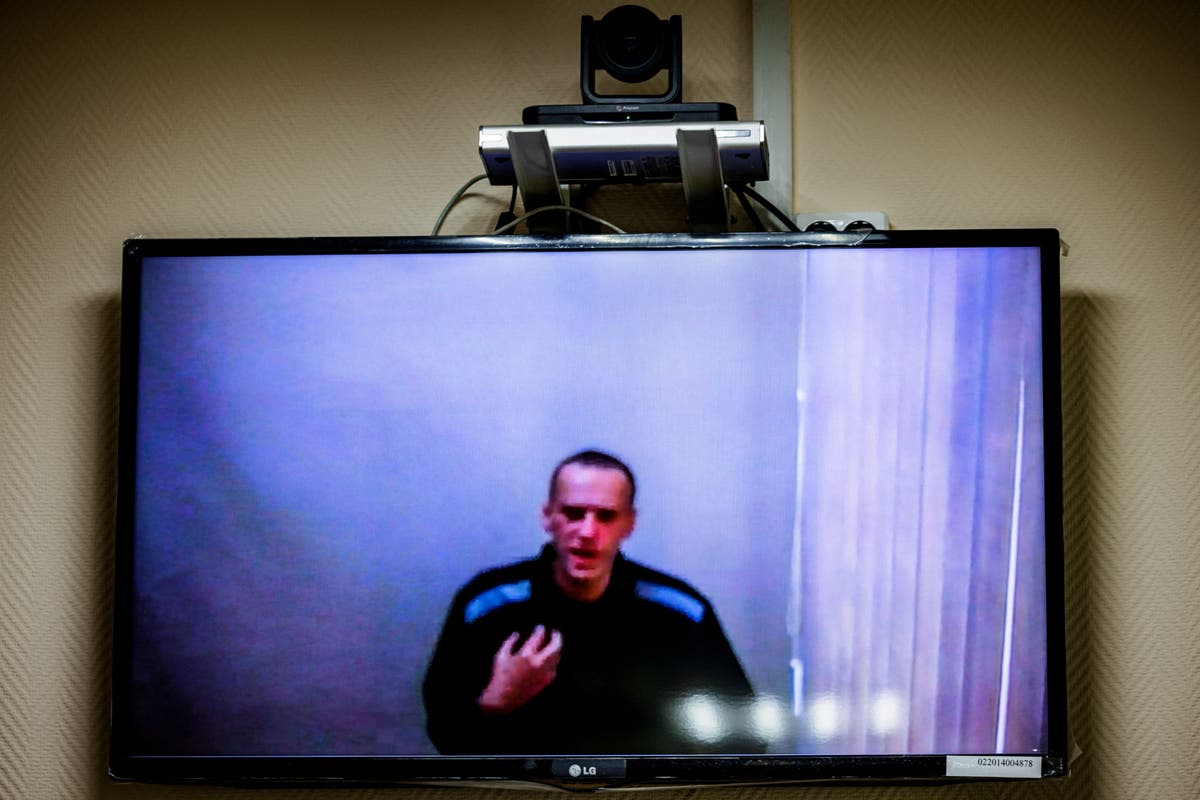Jailed Kremlin critic Alexei Navalny says he is being forced to watch state television for eight hours a day

Alexei Navalny, the Kremlin critic currently in prison in Pokrov, has compared his Russian prison to a Chinese labour camp in his first interview from jail.
Speaking to The New York Times, Mr Navalny explained that he was being forced to watch eight hours of Russian state television each day, saying that, although the days of heavy labour in Soviet prisons are over, they have been replaced by what he called “psychological violence”.
Mr Navalny, who built a political career exposing corruption in Russia, said that being forced to watch Russian propaganda was part of an “awareness-raising” programme for political prisoners.
“Reading, writing or doing anything else” is prohibited, Mr Navalny disclosed. “You have to sit in a chair and watch TV,” he said, adding that if a prisoner falls asleep the guards shout: “Don’t sleep, watch!”
“You might imagine tattooed muscle-men with steel teeth carrying on with knife fights to take the best cot by the window,” Mr Navalny was quoted as saying.
Recommended Final UK troops pulled out of Kabul
“You need to imagine something like a Chinese labour camp, where everybody marches in a line and where video cameras are hung everywhere. There is constant control and a culture of snitching,” he added.
Mr Navalny explained that there are five daily sessions of television-watching for inmates, the first of which begins straight after breakfast.
Then, after some free time, there’s a two-hour spell in front of the screen, lunch, then more TV, dinner, and then more screen time in the evening. Apparently, during one afternoon session, inmates may play chess or backgammon as an acceptable alternative.
Explaining what sort of things the prisoners are made to watch, Mr Navalny said: “We watch films about the ‘great patriotic war’, or how one day, 40 years ago, our athletes defeated the Americans or Canadians.”
He said that, during the TV viewing time, “I most clearly understand the essence of the ideology of the Putin regime: the present and the future are being substituted with the past – the truly heroic past, or embellished past, or completely fictional past. All sorts of past must constantly be in the spotlight to displace thoughts about the future and questions about the present.”
He went on to say he had not been attacked by any fellow prisoners, even describing having “fun” creating snacks with them.
The 45-year-old Kremlin critic, who is being held 100km north of Moscow, remained positive about the future in respect of Vladimir Putin’s regime, insisting that one day it would come to an end.
“Sooner or later, this mistake will be fixed, and Russia will move on to a democratic, European path of development – simply because that is what the people want,” he said in the interview.
He went on to repeat criticisms of the US and European governments for their use of sanctions against Russia, saying that these harmed Russian people instead of those in power.
Mr Navalny has remained intermittently active on social media since his jailing in March and has even released a letter from prison.
Western intelligence agencies have said they have “high confidence” that Mr Navalny was poisoned with the nerve agent novichok last year by FSB officers, something that the Kremlin denies.
He was first flown to Germany for treatment but later returned to Russia in January, where he was arrested and sent to a penal colony.
According to the charges brought against him, Mr Navalny violated parole requirements during his stay in Germany. The sentence has been criticised internationally as being politically motivated.
Most recently, he was charged with a fresh set of crimes that could extend his jail time by three years. If he is found guilty of these crimes, he would be released after 2024, the year in which Russia intends to hold a presidential election.






